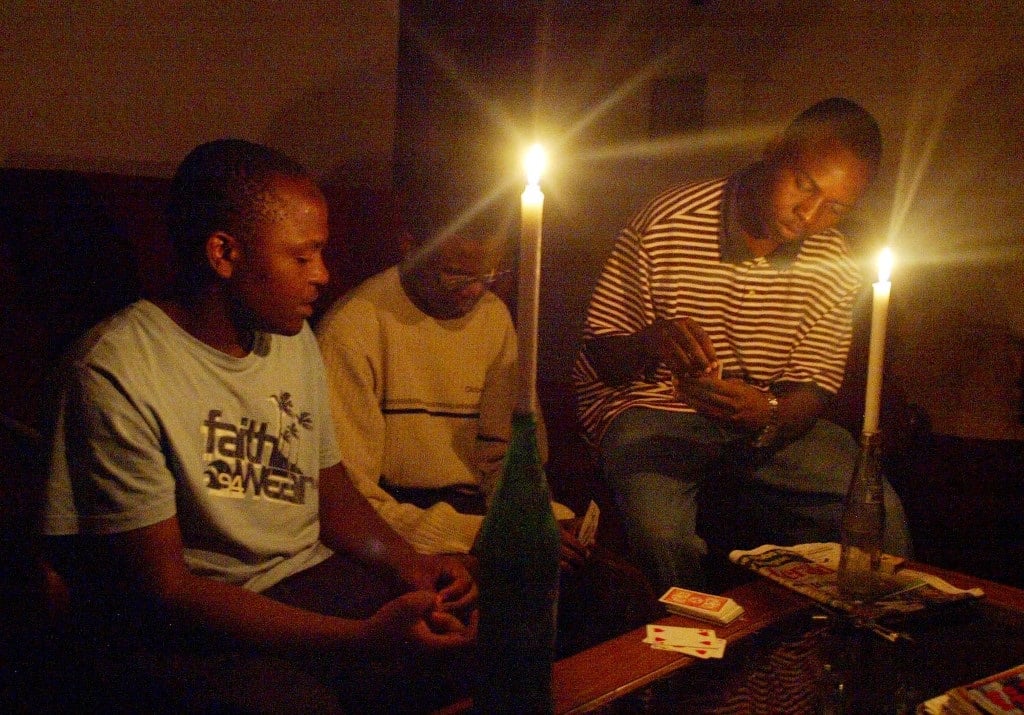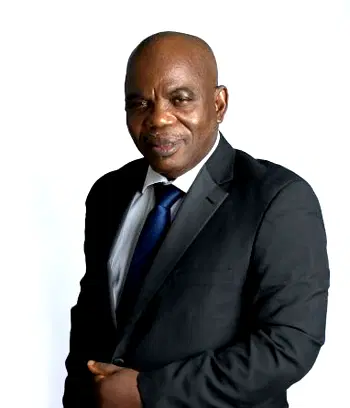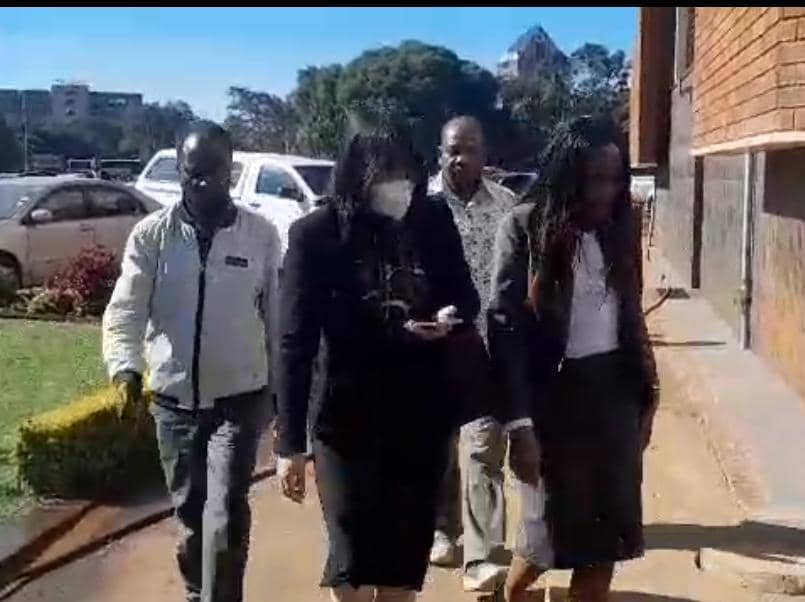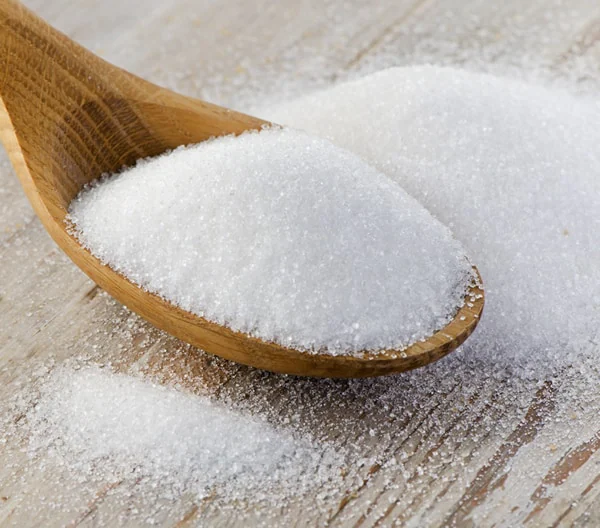Zimbabwe News
Zimbabweans endure 19 hours a day without electricity

Zimbabweans are being subjected to 19 hours of power cuts a day, because there is insufficient water in the Kariba dam to drive the nation’s main hydropower plant.
The worst outages since 2019 are wreaking havoc, causing snarl-ups in Harare, the capital, where most traffic lights are no longer working, and interrupting mobile phone services because batteries used to run base stations don’t have time to recharge.
Supermarkets, restaurants and some other businesses rely on generators to keep operating, but they are unable to run them perpetually for an extended period.
“Kariba generates almost half of our power needs, which is why a reduction in its generation capacity immediately registers throughout our economy and in our lives,” Zimbabwean President Emmerson Mnangagwa wrote in his weekly column in state media on Sunday.
The level of usable water in Kariba, which is the world’s largest man-made reservoir and is tapped by both Zambia and Zimbabwe, stood at 4.1% as of Nov. 28, a record low, according to the Zambezi River Authority, which manages water supply for the two southern African nations.
Zimbabwe has used up its water allocation from Kariba this year and was drawing 200 megawatts of power from the dam’s hydropower plant on Monday, less than a fifth of the installed capacity it should be able to access, according to data on the Zimbabwe Power Company website.
“Kariba will not shut down completely,” Soda Zhemu, the energy minister, said in an emailed statement.
The authorities plan to increase power imports from South Africa and Mozambique, and ramp up production from its antiquated coal-fired power stations in Hwange to at least 400MW to help add capacity to the grid, he said.
Zambia will start rolling blackouts from 15 December that will last for six hours at a stretch and only affect residential areas, Energy Minister Peter Kapala, told legislators on 2 December.
Zimbabwe News
United Nations Peace ambassador, Apostle Paul Aigbokhan calls for peaceful protest

Nigeria was once hailed as one of Africa’s strongest and greatest nations, but recent years have seen a troubling decline marked by economic downturn, rising insecurity, and deteriorating international standing. The hardships faced by citizens have become unbearable, with many struggling to survive. It is in this context that the youth, the backbone of our nation, are stepping forward to demand change.
To the vibrant and passionate youths of Nigeria, your right to protest is enshrined in our constitution. It is a powerful tool for expressing dissent and demanding accountability. However, it is crucial to remember that the effectiveness of your message is amplified when delivered peacefully. Vandalizing property and engaging in violence not only undermines the legitimacy of your cause but also puts innocent lives at risk.
Peaceful protest is not a sign of weakness; it is a testament to your strength and maturity. It shows that you are capable of demanding change without resorting to destruction. Let us honor the legacy of past leaders who fought for our rights with dignity and respect for human life.
A Call to the Government and Political Leaders
To our government and political leaders, the voices of the people are crying out for change. It is your duty to listen and act. The grievances being expressed are not new; they reflect years of neglect and mismanagement. The time for empty promises is over. Concrete actions are needed to address the economic challenges, improve security, and restore Nigeria’s standing on the global stage.
The youths of Nigeria are not just the leaders of tomorrow; they are the leaders of today. They deserve a government that listens to their concerns and works tirelessly to create a better future for all. Engaging in open dialogue and taking decisive steps to address the issues at hand will not only alleviate the current crisis but also rebuild the trust between the government and the people.
As the protests is on, let us all remember that our common goal is to build a better Nigeria. This can only be achieved through peaceful and constructive actions. To the youths, march with purpose and resolve, knowing that your peaceful stance speaks volumes. To the government and political leaders, hear the cries of your people and take meaningful steps to make things right.
Source: vanguardngr
Zimbabwe News
Chinese national Li Song accused in Cynide scandal in Zimbabwe

A Chinese national who was arrested yesterday at the Harare magistrate court on allegations of smuggling more than 100 tonnes of Cynide has claimed to be a diplomat.
Li Song who is facing several allegations that include money laundering, extenalisation, theft and attempted murder has been released by the National Prosecuting Authority to the amusement of the complainants who have a solid evidence against her.
According to the source who attended the vetting process Li Song claimed to be a diplomat who is immune from arrest in the country and the members of Zimbabwe Anti-Corruption Commission went to the Chinese embassy to verify her claim..
According to the Zimbabwe Anti-Corruption Commission officers Somg was taken to Avondale police station cells for verification.
The notorious Chinese national has been implicated in various offences in the country and is also suspected to be one of the suspect in the poisoning of elephants with Cynide in the country.
Song is accused of externalizing more than US$11 million to an offshore bank account and the Reserve Bank of Zimbabwe is a complainant in the case.
Song was arrested at the Harare magistrates court by members of Zacc and is expected to appear in court today.
According to the source Li improtedd more than 100 tonnes of Cynide but was later found with 40 tonnes which was stores at different places in a bid to use it in court to obstruct the course of justice.
Li was recently summons to appear in court on May 21 on allegations of externalization and moneylaundering which Reserve Bank of Zimbabwe is the complainant.
She is accused of externalizing US$11 million through the central bank after manufacturing invoices to get forex at the bank’s auction system.
The Chinese national who is also referred as a defacto ambassador of China is also facing allegations of attempting to kill her business partner Franesco Marconati who is the owner of Eagle Italian Leather and Shoes.
Zimbabwe News
Sugar shortage hits Zimbabwe

Some parts of the country such as the capital, Harare, are experiencing shortages of sugar supplies at retail shops with the informal sector struggling to restock.
A snap survey yesterday confirmed that sugar was in short supply at most shelves, including at smaller retailers in Harare.
Retailers that spoke to NewsDay claimed that this was due to supply bottlenecks at sugar manufacturer Hippo Valley Estates (Hippo).
The retailers were demanding customers buy goods worth US$100 to make them eligible to buy sugar while others simply demanded a dollar or more for each pack of 10 units on top of the marked price.
Tongaat Hulett chief executive Aiden Mhere, however, quickly dispelled such claims saying his company was adequately stocked, while production is going on smoothly.
Mhere said there was enough sugar on the market, with some of it being exported.
“I am on leave for a week now, but I can assure you that there are no supply bottlenecks whatsoever. We have no problem on our end other than that the possibility that some players, particularly the smaller ones, are unable to pay for deliveries, and we can’t continue to supply people who are not paying,” Mhere told NewsDay.
“There are no supply bottlenecks that I know for sure and you can even contact my colleagues from the office.”
Hippo Valley chief operating officer Sylvester Mangani said the company had huge stocks of sugar and was able to meet demand.
However, he said there were some players that were unable to restock.
“Remember there was an influx of imports after duty on basics was lifted. Now that we are back to normal, some players can’t afford to re-stock. Informal retailers pay cash upfront and are, therefore, likely experiencing cashflow challenges,” Mangani said.
In its latest annual report for 2022, Hippo Valley said although local demand for sugar remained strong as industry recovered from the impacts of COVID-19, the sugar industry was engaging authorities to ensure an even competitive playing field against cheap imports of sugar originating from surplus producers, who enjoy duty protection in their host countries.
The Zimbabwe Sugar Industry has a single marketing desk administered by Zimbabwe Sugar Sales (Private) Limited.
The company’s share of total industry sugar sales volumes of 394 000 tonnes for the year ended March 31, 2022 was 53,2%.
Total industry sugar sales into the domestic market for the year at 356 000 tonnes were 10% higher than the previous year, driven by strong domestic demand.
Industry export sales, however, decreased by 67% to 38 000 tonnes following redirection of supply to the local market in view of the increased demand.
In other news – LaConco’s father reveals he is ready to reconcile with his daughter
LaConco’s father has revealed that he is ready to reconcile with his daughter.
The star’s father has no intention to leave this world a heartbroken man following his strained relationship with his daughter. Learn More

